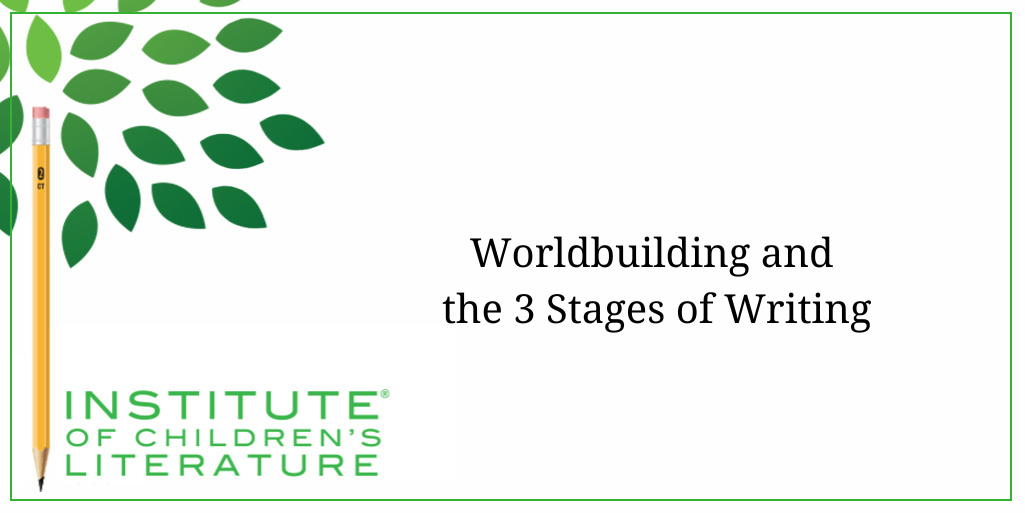
5 Ways Writers Can Prep for 2025 Goal Setting
Before we roll on to the new writing year, let’s harness our optimism for the blank slate before us and prepare for our 2025 Goal Setting just for writers.

When it comes to worldbuilding, many writers of realistic fiction don’t think about whether the worldbuilding they are doing works. They don’t think about worldbuilding at all and don’t realize that all the decisions they make about setting and community within a realistic story are a form of worldbuilding.
Most of the worldbuilding I do for a children’s story is created to save me from problems later. I nearly always come to regret scant worldbuilding when the lack of pre-thought slows down the work or even causes writing blocks for me. That doesn’t mean anyone successfully does all the necessary worldbuilding before the writing begins. Even people who are meticulous about plots and outlines won’t know every question that will pop up in the future. But the more you do ahead, the more you won’t need to do later.
Working on worldbuilding before you begin writing offers more than efficiency. It can affect how daring you are when you start the writing and how much energy you put into the work. Early worldbuilding can give you confidence that you know where your book is set and how the world of the story works. It deepens your connection to the story’s sense of place. It makes it feel more real.

Once you begin the writing, that early worldbuilding will start to pay off by giving you touchstones about the world in which your story takes place. You’ll probably have decided on the season and the climate in which the story takes place. You’ll know about the community and whether you’re creating a story where most people are helpful and supportive, or if a thread of competition and anger permeates the community. You’ll know the mood of the story. But you won’t know everything. Questions will still pop up.
Answering questions is part of the process of writing. Many times, I’ve been working on a story and hit something I simply did not think about. Just today I had to do a search to find out if people can eat vultures, and what the result of doing so would be. I hadn’t known someone was going to eat a vulture in my book, because no matter how much pre-writing I do, I always leave room for new ideas and new decisions that sometimes take the work in a new direction. Questions will always lie in new directions.

When I stop, I can give focused attention to this new direction. That will keep me from beginning to feel like I’ve made a bad choice simply because I feel unsure about the elements connected to this new direction.
Sometimes allowing a story to veer off in a new direction does turn out to be a bad choice and takes us too far away from the plot, theme, and plan we came in with. But stopping to do some research and give some thought to worldbuilding will ensure the reason we give up on a new direction is a valid reason and not simply because there is a bit of worldbuilding we still need to do.
When your writing is done, we all know there is still work ahead. Revision is one of the most complicated jobs writers undertake, partially because revision is so different from writing. Most of us can benefit from bringing others into the revision process, whether we turn to critique groups, paid editors, or beta readers. And one big area we should be sure these folks help with is evaluating worldbuilding.
To direct attention to worldbuilding when I hand a piece over to my critique partner, I always send it along with questions. Worldbuilding questions often include:

All of the above kinds of questions help ensure my revision-step readers don’t overlook worldbuilding problems in an over-focus on character or correcting my typos. I have found (over time) that the things I do really well (dialogue, humor, plot) can distract readers from the things I don’t do as well.
My focus can be on the things I do well, which can result in a story that feels shallow overall because I don’t spend enough time creating the world of the story. Asking questions that push worldbuilding to the center of attention during revision can help you to do it better.
Worldbuilding is one of those things that settles quietly into the background of every scene and thus can seem unimportant. But it pays off huge dividends when readers feel as if they were drawn into your world.
And that is worth all the effort we put into it, every time.
With over 100 books in publication, Jan Fields writes both chapter books for children and mystery novels for adults. She’s also known for a variety of experiences teaching writing, from one session SCBWI events to lengthier Highlights Foundation workshops to these blog posts for the Institute of Children’s Literature. As a former ICL instructor, Jan enjoys equipping writers for success in whatever way she can.

Before we roll on to the new writing year, let’s harness our optimism for the blank slate before us and prepare for our 2025 Goal Setting just for writers.

Writers can be thin-skinned when it comes to getting feedback on their work. Let’s look at 4 ways to positively deal with constructive criticism!

Rejection is part of the territory when it comes to being a writer. Today we offer reflection for writers to help redirect your efforts after a rejection.
1000 N. West Street #1200, Wilmington, DE 19801
© 2024 Direct Learning Systems, Inc. All rights reserved.
1000 N. West Street #1200, Wilmington, DE 19801
© 2024 Direct Learning Systems, Inc. All rights reserved.
1000 N. West Street #1200, Wilmington, DE 19801
© 2024 Direct Learning Systems, Inc. All rights reserved.
1000 N. West Street #1200, Wilmington, DE 19801
© 2025 Direct Learning Systems, Inc. All rights reserved.
1000 N. West Street #1200, Wilmington, DE 19801
©2025 Direct Learning Systems, Inc. All rights reserved. Privacy Policy.